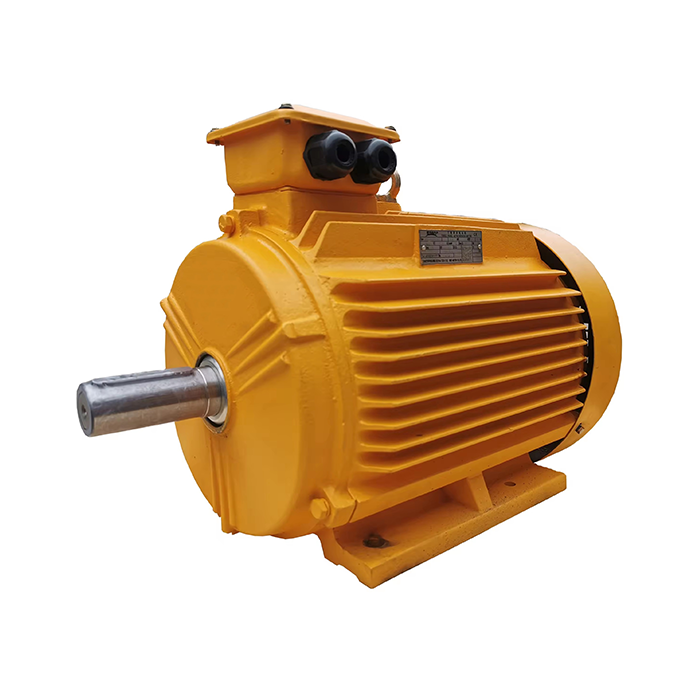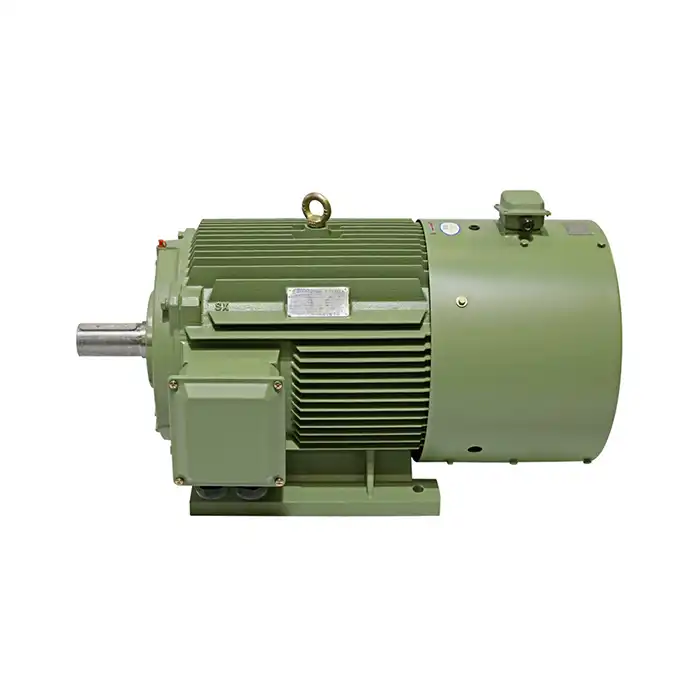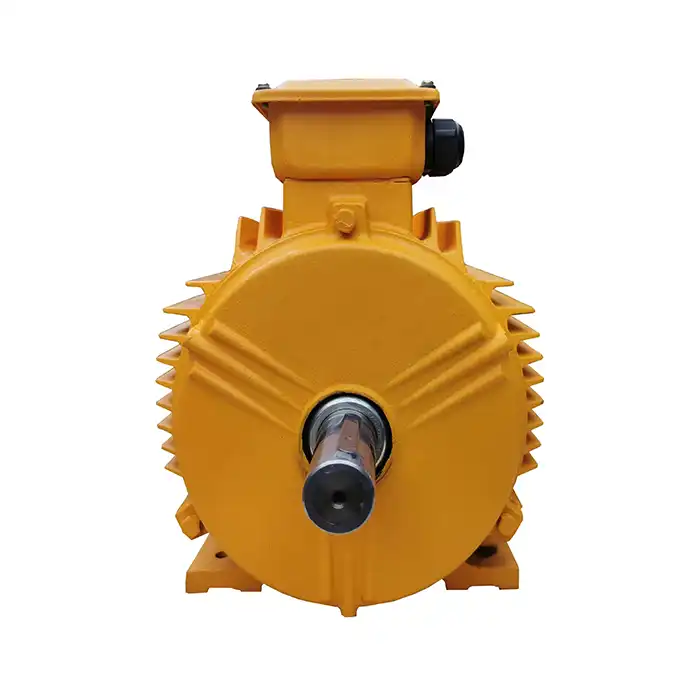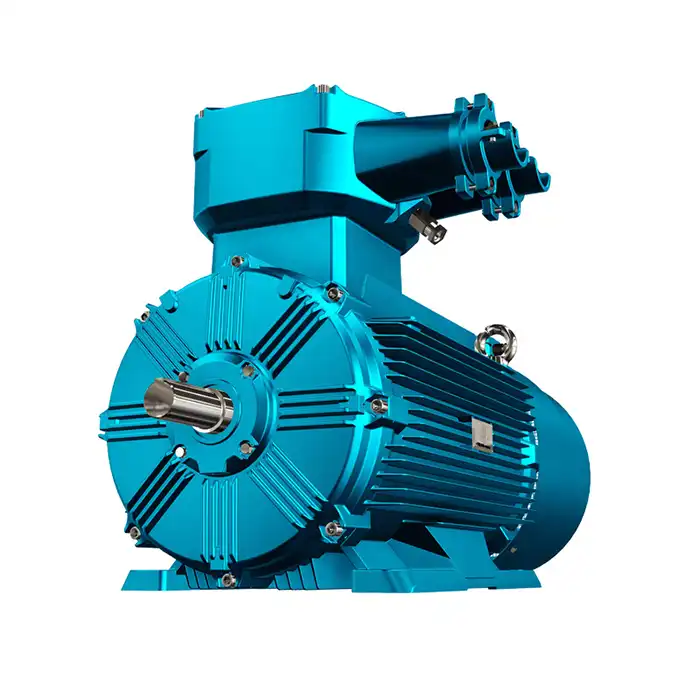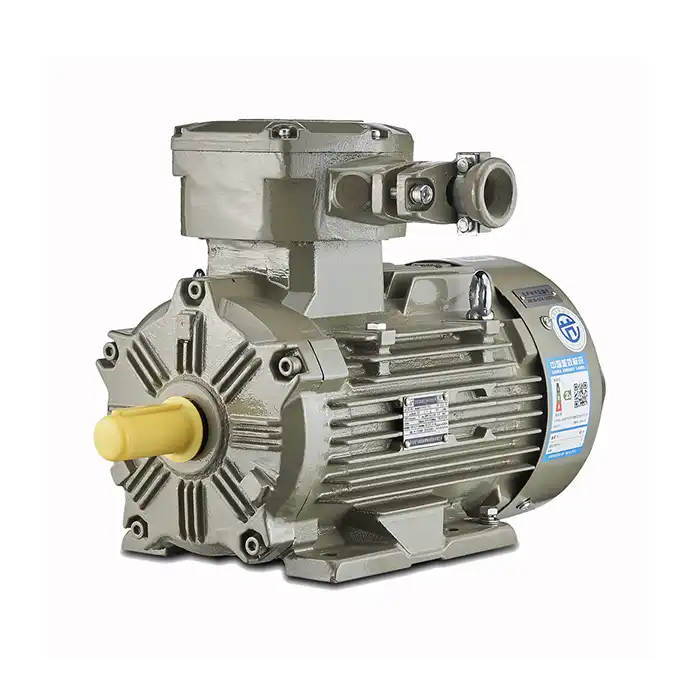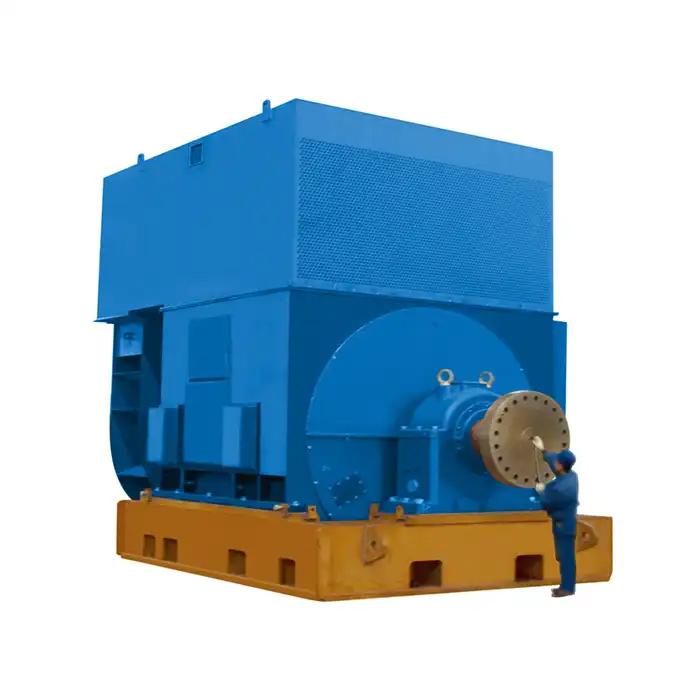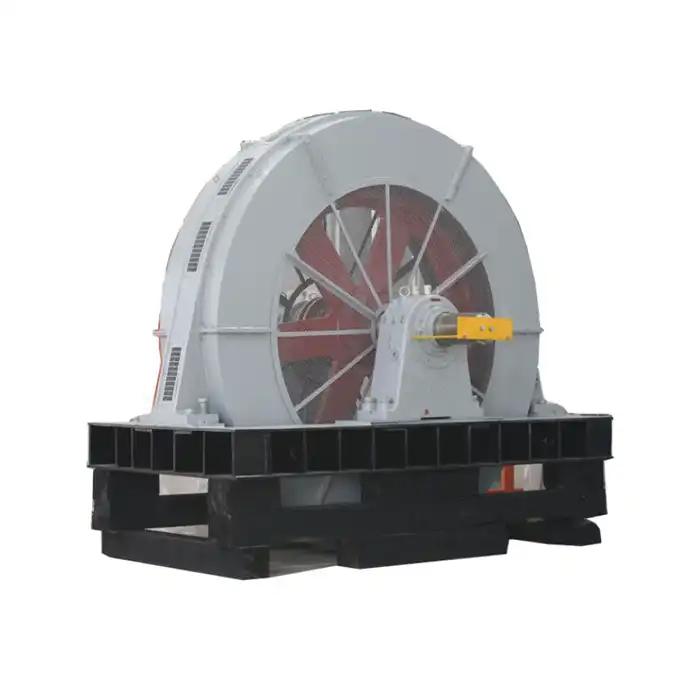What are the Efficiency Standards for Medium DC Motors?
In the realm of industrial power solutions, Z Series Medium DC Motors have emerged as vital components across various sectors. These motors, known for their reliability and performance, are subject to rigorous efficiency standards that ensure optimal energy use and cost-effectiveness. This article delves into the efficiency standards governing medium DC motors, with a particular focus on the Z Series, and explores their implications for industries relying on these crucial power sources.
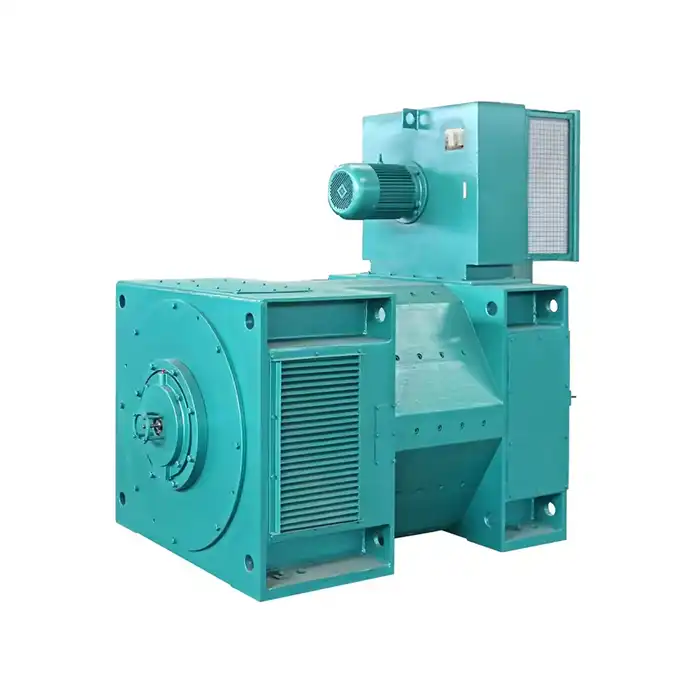
Product Specifications:
| Power Range: | 59kW to 1600kW |
| Voltage: | 220V to 750V |
| Speed Range: | 500 to 3000 rpm |
| Protection Class: | IP23 |
| Insulation Class: | F (155°C) |
| Cooling Method: | IC06,ICW37 |
Current international efficiency standards for Z Series DC motors
The global push for energy conservation has led to the establishment of stringent efficiency standards for electric motors, including medium DC motors. These standards aim to reduce energy consumption, minimize environmental impact, and promote sustainable industrial practices.
IEC 60034-30-1 Standard
The IEC 60034-30-1 standard, established by the International Electrotechnical Commission, categorizes electric motor efficiency into classes such as IE1, IE2, IE3, and IE4. While this classification primarily applies to AC motors, its influence extends to DC motor development, including Z Series Medium DC Motors, by encouraging similar energy efficiency benchmarks. Manufacturers of Z Series motors often align their designs with IEC principles to meet global market expectations and support energy-saving initiatives, even if the standard doesn’t formally regulate DC motor classes.
NEMA Premium Efficiency Program
The NEMA Premium Efficiency program, developed by the National Electrical Manufacturers Association in the United States, promotes high energy efficiency for electric motors. Although it focuses on AC motors, its impact on DC motor design is substantial. Manufacturers of Z Series Medium DC Motors targeting the North American market often design products to meet or exceed these expectations. The program encourages improved energy performance, reduced power consumption, and overall sustainability—factors that align with industry trends and customer demands for more efficient motor solutions.
Chinese GB 18613 Standard
The GB 18613 standard is China’s national guideline for setting minimum energy performance requirements for electric motors, covering both AC and DC types. For manufacturers and users of Z Series Medium DC Motors within China, compliance with this standard is essential. It promotes energy conservation and environmental protection by mandating efficiency benchmarks. The standard also supports China's broader industrial and sustainability goals. Z Series motors designed for the Chinese market are often tested and certified according to GB 18613 to ensure regulatory compliance and market acceptance.
How to interpret efficiency class ratings for medium DC motors?
Understanding efficiency class ratings is crucial for making informed decisions when selecting or upgrading medium DC motors. These ratings provide valuable insights into a motor's energy consumption and operational costs.
IE Efficiency Classes
The International Efficiency (IE) classification system categorizes motors into different efficiency levels:
- IE1: Standard Efficiency
- IE2: High Efficiency
- IE3: Premium Efficiency
- IE4: Super Premium Efficiency
- IE5: Ultra Premium Efficiency
While these classifications were initially developed for AC motors, they serve as a useful reference point for DC motors as well. Z Series Medium DC Motors often align with the higher efficiency classes, typically falling within the IE3 or IE4 categories.
Efficiency Curves and Load Points
Efficiency ratings are typically provided at specific load points, usually at 25%, 50%, 75%, and 100% of rated load. When interpreting these ratings, it's important to consider the motor's intended application and typical operating conditions.
Power Factor and Rated Efficiency
For DC motors, the power factor is always 1, which simplifies efficiency calculations compared to AC motors. The rated efficiency of a DC motor is typically measured at full load and rated voltage.
Energy-saving benefits of high-efficiency Z Series models
Investing in high-efficiency Z Series Medium DC Motors can yield significant energy savings and operational benefits for industries across various sectors.
Reduced Energy Consumption
High-efficiency motors consume less energy to produce the same output as their lower-efficiency counterparts. This translates to lower electricity bills and reduced strain on power infrastructure.
Lower Operating Costs
While high-efficiency motors may have a higher initial cost, their reduced energy consumption leads to lower operating costs over the motor's lifetime. This makes them a cost-effective choice for long-term industrial applications.
Environmental Impact
By consuming less energy, high-efficiency Z Series Medium DC Motors contribute to reduced greenhouse gas emissions and a smaller carbon footprint for industrial operations.
Improved Performance and Reliability
High-efficiency motors often feature improved designs and materials, resulting in better performance, longer lifespan, and increased reliability. This can lead to reduced maintenance costs and downtime.
Compliance with Regulations
As energy efficiency regulations become more stringent, investing in high-efficiency motors ensures compliance with current and future standards, avoiding potential penalties or forced upgrades.
Application-Specific Benefits
In specific applications such as metallurgical industrial rolling mills, metal cutting machine tools, and cement production, high-efficiency Z Series motors can provide tailored benefits. These may include improved process control, faster production speeds, and enhanced product quality.
Conclusion
The efficiency standards for medium DC motors, particularly those applicable to the Z Series, play a crucial role in driving energy conservation and sustainable industrial practices. By understanding these standards and the benefits of high-efficiency motors, businesses can make informed decisions that lead to improved operational efficiency, cost savings, and environmental stewardship.
As industries continue to evolve and face new challenges, the importance of efficient power solutions cannot be overstated. Z Series Medium DC Motors, with their adherence to stringent efficiency standards, represent a significant step forward in industrial power technology.
Are you looking to optimize your industrial operations with high-efficiency power solutions? Shaanxi Qihe Xicheng Electromechanical Equipment Co., Ltd. specializes in providing cutting-edge power equipment, including energy-efficient Z Series Medium DC Motors. Our solutions cater to a wide range of industries, from manufacturing and process control to renewable energy and transportation. We're committed to delivering power equipment that combines high energy efficiency with low energy consumption and stable power output. Our team of experts is ready to assist you with pre-sales inquiries, after-sales support, and technical guidance. To learn more about how our power equipment can transform your operations, contact us at xcmotors@163.com. Let's work together to enhance your industrial efficiency and sustainability.
References
1. International Electrotechnical Commission. (2014). IEC 60034-30-1:2014 Rotating electrical machines - Part 30-1: Efficiency classes of line operated AC motors (IE code).
2. National Electrical Manufacturers Association. (2016). NEMA Premium Efficiency Motors Program.
3. Standardization Administration of China. (2012). GB 18613-2012 Minimum allowable values of energy efficiency and energy efficiency grades for small and medium three-phase asynchronous motors.
4. De Almeida, A. T., Ferreira, F. J., & Baoming, G. (2014). Beyond induction motors—Technology trends to move up efficiency. IEEE Transactions on Industry Applications, 50(3), 2103-2114.
5. Waide, P., & Brunner, C. U. (2011). Energy-efficiency policy opportunities for electric motor-driven systems. International Energy Agency.
6. Cao, W., Mecrow, B. C., Atkinson, G. J., Bennett, J. W., & Atkinson, D. J. (2012). Overview of electric motor technologies used for more electric aircraft (MEA). IEEE transactions on industrial electronics, 59(9), 3523-3531.



